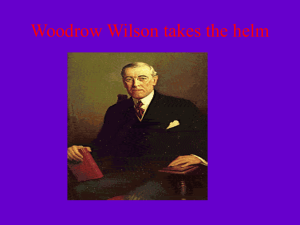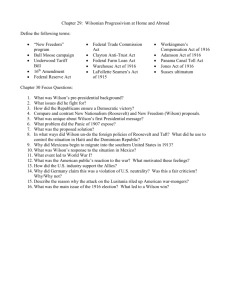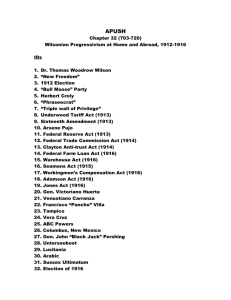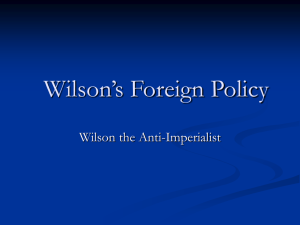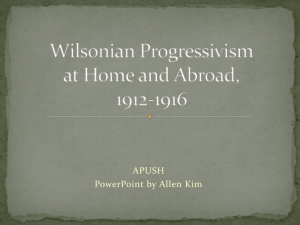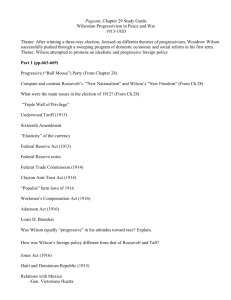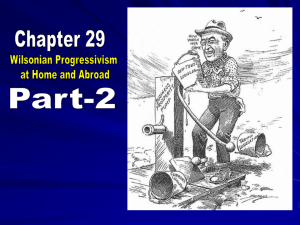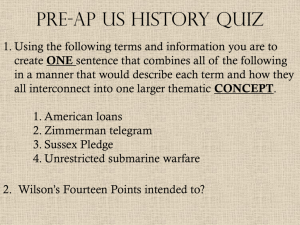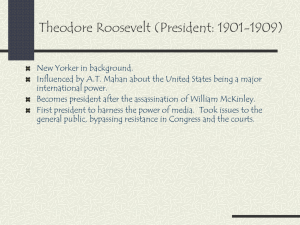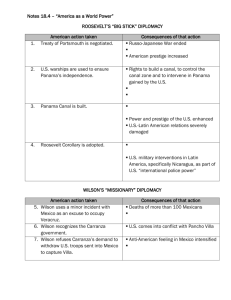WWI Part 1 Notes
advertisement
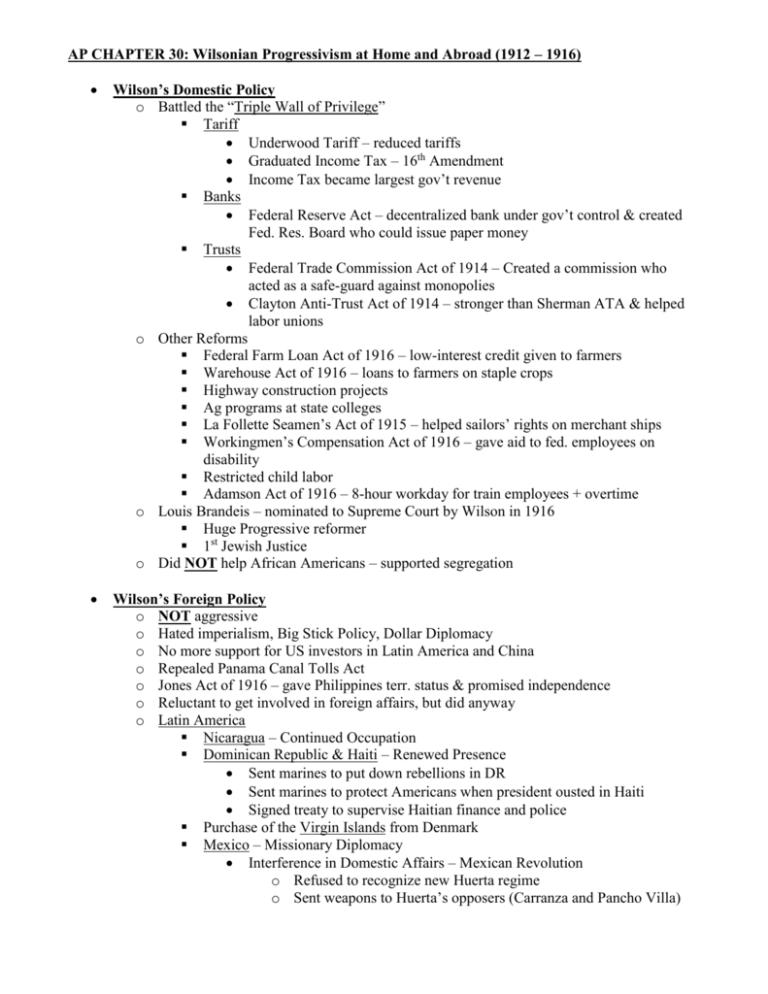
AP CHAPTER 30: Wilsonian Progressivism at Home and Abroad (1912 – 1916) Wilson’s Domestic Policy o Battled the “Triple Wall of Privilege” Tariff Underwood Tariff – reduced tariffs Graduated Income Tax – 16th Amendment Income Tax became largest gov’t revenue Banks Federal Reserve Act – decentralized bank under gov’t control & created Fed. Res. Board who could issue paper money Trusts Federal Trade Commission Act of 1914 – Created a commission who acted as a safe-guard against monopolies Clayton Anti-Trust Act of 1914 – stronger than Sherman ATA & helped labor unions o Other Reforms Federal Farm Loan Act of 1916 – low-interest credit given to farmers Warehouse Act of 1916 – loans to farmers on staple crops Highway construction projects Ag programs at state colleges La Follette Seamen’s Act of 1915 – helped sailors’ rights on merchant ships Workingmen’s Compensation Act of 1916 – gave aid to fed. employees on disability Restricted child labor Adamson Act of 1916 – 8-hour workday for train employees + overtime o Louis Brandeis – nominated to Supreme Court by Wilson in 1916 Huge Progressive reformer 1st Jewish Justice o Did NOT help African Americans – supported segregation Wilson’s Foreign Policy o NOT aggressive o Hated imperialism, Big Stick Policy, Dollar Diplomacy o No more support for US investors in Latin America and China o Repealed Panama Canal Tolls Act o Jones Act of 1916 – gave Philippines terr. status & promised independence o Reluctant to get involved in foreign affairs, but did anyway o Latin America Nicaragua – Continued Occupation Dominican Republic & Haiti – Renewed Presence Sent marines to put down rebellions in DR Sent marines to protect Americans when president ousted in Haiti Signed treaty to supervise Haitian finance and police Purchase of the Virgin Islands from Denmark Mexico – Missionary Diplomacy Interference in Domestic Affairs – Mexican Revolution o Refused to recognize new Huerta regime o Sent weapons to Huerta’s opposers (Carranza and Pancho Villa) Tampico Incident o Amer. Sailors arrested, but released with apologies o Wilson (hating Huerta) asked Congress to use force against Mexico Vera Cruz – Wilson seized control after Tampico Niagara Falls Conference (ABC Powers mediate) o Huerta regime falls o Carranza succeeds him – Wilson supports him o Pancho Villa challenges Carranza and begins killing Americans (to provoke war b/t US and Mex.) Pershing’s Raid o Sent to capture Villa, but failed o US troops withdrawn – 1917 (WWI) WWI Begins in Europe (1914) Causes (5): o Militarism o Imperialism o Secret Military Alliances o Nationalism o “The Spark” – assassination of Archduke Ferdinand (A-H) Each nation was pulled into the fight because of alliances Central Powers: Germany, Austria-Hungary, Ottoman Empire (Turkey), and later Bulgaria Allies: Britain, France, Russia (later Italy, Japan) Wilson decides to remain neutral o Britain portrays Germany as brutal monsters o Americans related to Europeans (immigrants) o Anti-German attitude o US sells war products to Britain and France – pulls US out of recession o US would have sold to Germany but couldn’t b/c of British blockade o Germany declares unrestricted submarine warfare U-boats sink the Lusitania (128 Amer. killed) 1915 Amer. still divided over going to war Ger. sinks several more passenger liners Election of 1916 o Dem. – Wilson (slogan – “He kept us out of war”) – supported by working class and some progressives o Rep. – Charles Evans Hughes o Progressives – Die out b/c TR refuses to run o Wilson barely wins (277 – 254)
